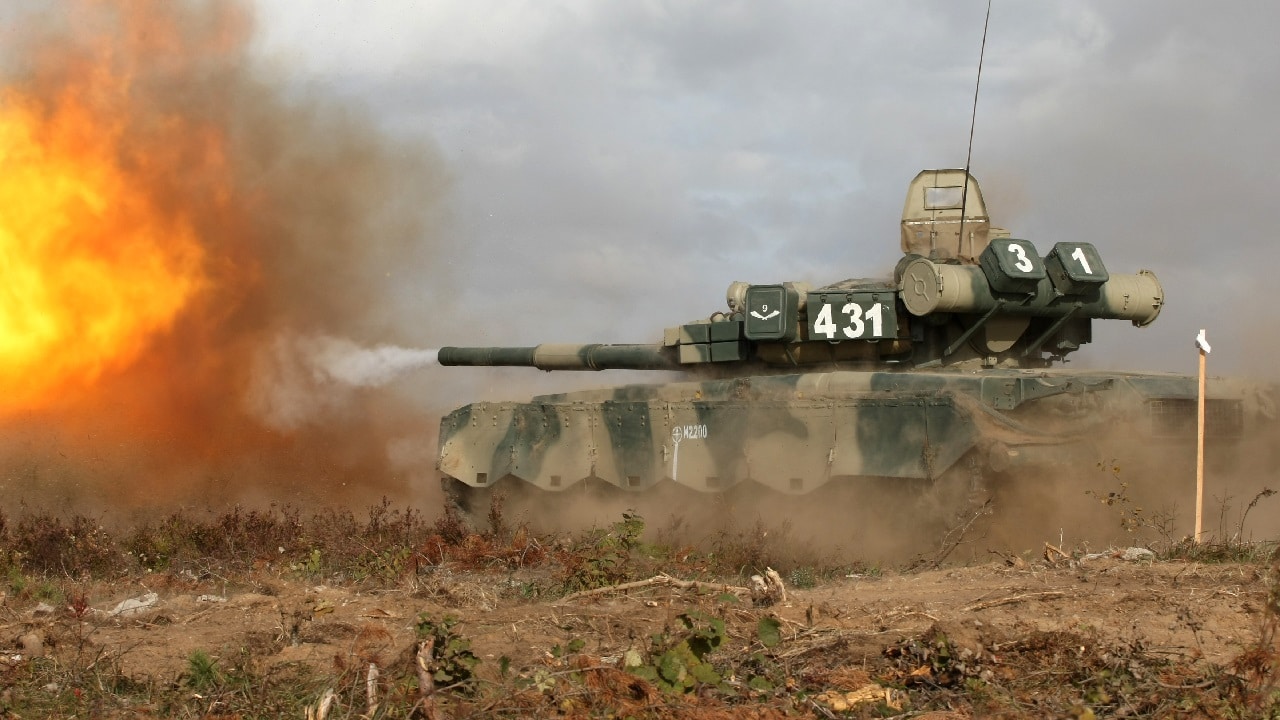The West Must Expose One of Russia’s Biggest Lies: Being Threatened By Ukraine – In January, U.S. intelligence reports described a plan by Russian operatives to orchestrate a false flag operation along the Ukraine-Russia border to create the perception that Ukraine was launching an offensive against Russia. While the tactic never came to fruition – most likely as a result of the White House releasing its plans before they were executed – Russia is guiltier of a far larger false flag effort through its consistent and false portrayal of Ukraine as an aggressor. This dangerous idea, which makes up a large portion of the public rationale for Russia’s invasion, must be exposed as often as it is expressed by President Putin, Russian Foreign Minister Lavrov, and the Kremlin’s state media machine.
While the absurd claim of Ukraine being the aggressor has been rebuffed by Ukrainian, European, and U.S. officials, it has nonetheless permeated Russian propaganda and even taken root in far-right American media. Simply put, Ukraine is not capable of launching an assault on Russia, nor has it ever expressed any desire to do so. Nonetheless, the Western public is susceptible to believing Russia has legitimate, pressing security concerns that justify its invasion if officials fail to combat this narrative at every opportunity.
There are a multitude of straightforward facts that need to be articulated to inform the public of Ukraine’s position relative to Russia. First, despite the military aid that allies provided before February 24 and the improvements the Ukrainian army has made since 2014, Ukraine was never in any condition to invade its larger, wealthier, and heavily armed neighbor. Although the Russian military has drastically underperformed in Ukraine, at the outset of the conflict it possessed roughly five times as many tanks, 15 times as many attack helicopters, and 23 times as many fighter planes. Ukraine, for its part, has been unable to rebuild its navy since Russia seized 75% of its fleet in 2014, having only developed a smaller fleet of patrol boats. If the sheer mathematical impossibility of Ukraine mounting an assault on its neighbor were not convincing enough, Russia has the largest nuclear deterrent in the world. Ukraine, in contrast, has no nuclear capabilities. In 1994, Ukraine signed an agreement with Russia to dismantle or transfer its nuclear arsenal to the Russian Federation in exchange for compensation and, notably, security pledges that included a commitment to its territorial sovereignty.
Furthermore, even if Ukraine was capable of mounting an invasion of Russia, it has no historical claims on Russia proper, nor any demonstrated willingness to forsake the economic and political progress it has made for a land war with a nuclear-armed state. This, of course, is taken as a given by even casual observers of Eastern Europe and power politics, but the general public is unaware of these crucial details. As a result, Russia consistently capitalizes on the awareness gap by pushing the narrative that it is a beleaguered, well-meaning nation merely trying to secure its borders.
Russia’s claims of being threatened by nearby states with no capacity or interest in doing so extend beyond Ukraine; the Baltic States are frequently accused of posing a security risk, despite their meager military stature and a strong preference for regional stability. The free press already has an uphill battle against Russia’s well-resourced, multilingual propaganda machine, but its job is made more difficult by the lack of attention Western officials bring to the mendacity of the Kremlin’s narrative.
Although Western officials know full well that President Putin’s claims are laughable, the general public does not. The Biden administration, as well as members of Congress and their European counterparts, must do more to combat the notion that it is Russia who is the victim. Otherwise, the West risks the development of a significant distortion of the events occurring in Ukraine to Russia’s favor.
Artur Kalandarov is an Associate at The Cohen Group, a strategic business advisory firm based in Washington D.C., where he advises clients on business operations in Eastern Europe. He studied Russian and Government at Bowdoin, and has previously been published in The National Interest, The Defense Post, and several academic journals.

